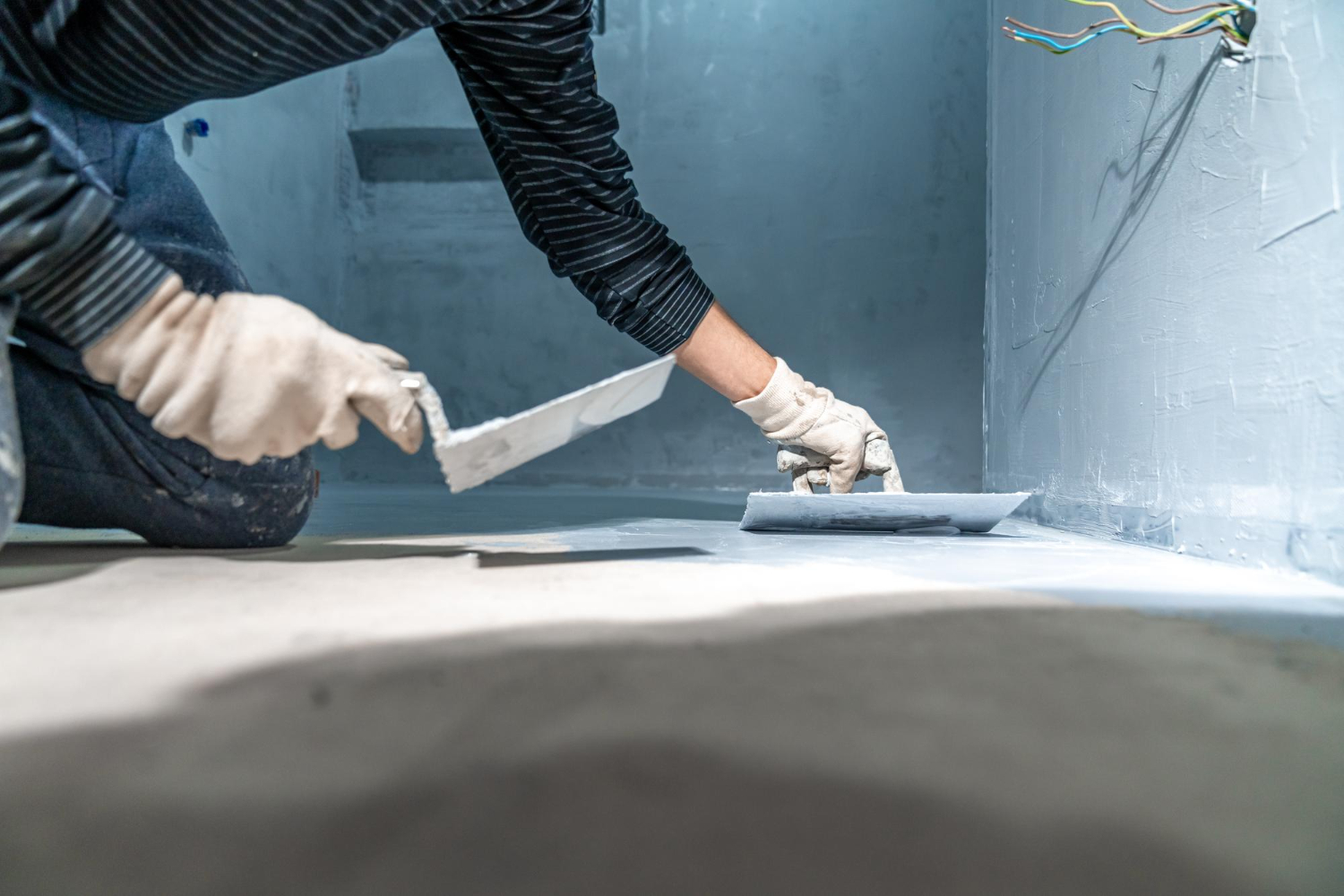A dry basement isn’t just about comfort, it’s about protecting your home. When water leaks in or moisture builds up over time, the problems can stretch beyond damp concrete. It can affect walls, floors, and even the air you breathe inside your home. For homeowners in Quincy, staying ahead of water issues is especially important with the summers bringing heavy downpours and the soil around homes shifting from moisture swings.
Poor basement waterproofing doesn’t always show itself right away. In many cases, the signs creep in slowly, like a musty smell that lingers after rain or a dark patch on the floor that doesn’t dry up. These early clues are easy to miss, especially if your basement is just used for storage or laundry. But noticing them early and knowing what to look for can prevent long-term structural damage that costs far more to fix.
Why Proper Basement Waterproofing Matters
Waterproofing your basement is about more than keeping out puddles. It’s about keeping your foundation strong and your indoor air safe. When water sneaks into your basement, it finds places to settle. Over time, this weakens concrete, causes wood to rot, encourages mold growth, and leads to rusted support beams or damaged insulation.
One Quincy homeowner noticed wood paneling in their finished basement warping after every thunderstorm. It seemed minor at first, but behind the wall, moisture had collected and mold had spread. What looked like a cosmetic issue turned out to be a much larger hidden problem. This sort of thing happens often, especially when waterproofing hasn’t been properly done or maintained.
Common problems caused by poor waterproofing include:
– Musty smells that don’t go away
– Rising humidity on the lower level of the home
– Peeling paint or bubbling drywall
– Uneven floors above the basement
– Electrical issues from moisture getting into outlets or panels
When a basement isn’t sealed the way it should be, water doesn’t need a lot of space to get in. It seeps through foundation cracks, around window wells, or even up from the floor. Once it’s in, it doesn’t leave quietly. Letting it linger only makes the damage worse. That’s why getting the right waterproofing in place and making sure it stays effective is a big deal during the rainy summer months in Quincy.
Key Signs Of Poor Basement Waterproofing
Some signs point clearly to water invasion, but others aren’t so obvious. You might walk over them every day and not give them much thought until a bigger issue pops up. Catching these hints early can save time, money, and stress. Here are several indicators that your waterproofing needs attention:
1. Visible mold and mildew
If you see fuzzy patches on walls or smell something earthy or sour, there’s likely mold present. Whether it’s white, green, or black, mold feeds on moisture and spreads fast.
2. Water stains on walls and floors
Dark rings or yellowish streaks usually mean water has leaked through and dried up, but it could return with the next rain.
3. Musty odors in the basement
That damp smell you notice when walking downstairs can stick around even without visible water. It signals trapped moisture, often in walls or under floor materials.
4. Efflorescence on surfaces
Efflorescence looks like white, chalky powder on basement walls. It forms when water brings minerals to the surface as it evaporates, a clear sign of past or present moisture trouble.
5. Cracks in the foundation
Tiny hairline cracks may not seem urgent, but they can open just enough for water to push through. Over time, these cracks grow and let in even more moisture.
These signs don’t just go away on their own. They may seem harmless at first, but they’re often symptoms of bigger concerns under the surface. Watching for them and acting quickly is one of the best ways to avoid costly repairs and more serious damage later on.
Addressing These Issues With Professional Help
Seeing the signs of water trouble in your basement doesn’t mean disaster is around the corner, but it is a clear signal to stop and deal with the issue before it gets worse. Once water starts creeping in, it rarely stops on its own. That’s why working with a professional basement waterproofing contractor in Quincy is the smart choice when you notice any of the warning signs.
If your basement smells musty, shows mold growth, or has visible cracks in the walls or floor, it’s time to bring in someone who knows what to look for. You don’t want to wait for puddles to collect or for drywall to bubble. By that point, the problem has already grown.
Professional contractors who handle basement waterproofing can solve more than just surface-level complaints. They’re trained to:
– Inspect and diagnose the true cause of moisture
– Identify how water is getting in and why
– Seal wall or floor cracks properly
– Install sump pumps or drainage systems if needed
– Apply interior or exterior waterproof coatings
– Recommend solutions that keep long-term damage at bay
These services don’t just patch symptoms. They go after the root of the problem. Also, getting an expert opinion early on can help you avoid repeat issues every time it rains or the snow melts.
People sometimes wait, thinking the problem might pass, or they try superficial fixes that don’t last once the Quincy storms roll through. That can turn a smaller repair job into something much bigger down the line. If you’re seeing any signs of poor waterproofing, skipping the guesswork and bringing in someone experienced is often the most practical path forward.
Preventive Measures For Homeowners
Staying ahead of water damage is possible with a few regular habits and checks. Homeowners who take small steps throughout the year often avoid the bigger problems altogether. These practical habits can make a real difference in how dry your basement stays over time.
Here are some checks and upgrades to help avoid basement water issues:
– Look for cracks or signs of wear: Make a habit of walking around your basement every few weeks, especially after heavy rain. Small cracks or water streaks may show up before bigger issues form.
– Check gutters and downspouts: If your gutters are clogged or your downspouts don’t drain water far away from the house, water can gather right at the foundation. That’s a direct invite for basement leaks.
– Pay attention to the grading around your home: The soil around your home should slope away from your foundation. Over time, ground can shift, so it helps to check and regrade where needed.
– Use a dehumidifier if humidity stays high: Even without floodwater, too much moisture in the air can be a problem. Keeping the air dry inside helps avoid mold growth and damp smells.
– Have a reliable drainage system: If your home has older plumbing, outdated sump pumps, or no drainage support, consider having it reviewed when possible.
These aren’t huge remodeling tasks. Most are small and intended to catch problems early. And while they’re helpful, they won’t fix active leaks or long-standing issues. That’s when calling someone who knows the ins and outs of waterproofing becomes the next step. Getting ahead of trouble means staying consistent with basic checks and knowing when a job is beyond simple upkeep.
Protect What Matters Most in Your Quincy Home
Paying attention to your basement now, before the next heavy rain hits, can prevent more than just damp floors. You’re protecting your investment in your home and saving yourself stress down the road. Waterproofing isn’t something to overlook or push to the bottom of the home maintenance list. Once signs begin to show, even small ones, they’re usually hinting at what’s going on behind the walls and under the floors.
In a place like Quincy, where seasonal rains and shifting soil make their mark on homes year after year, that extra attention to waterproofing isn’t just about comfort. It’s about preventing rot, mold, and foundation problems that can pull time and money from other parts of your life. Watching for trouble, making a few smart upgrades, and calling in the right help at the right time can go a long way in keeping your basement dry and your home solid.
Trust King Waterproofing & Foundation Solutions to protect your home from unwanted moisture. If you’re noticing early warning signs in your basement, scheduling an inspection with a qualified basement waterproofing contractor is a smart move to keep your home safe and dry. We’re here to help you stay ahead of potential problems, no matter what Quincy weather brings.


